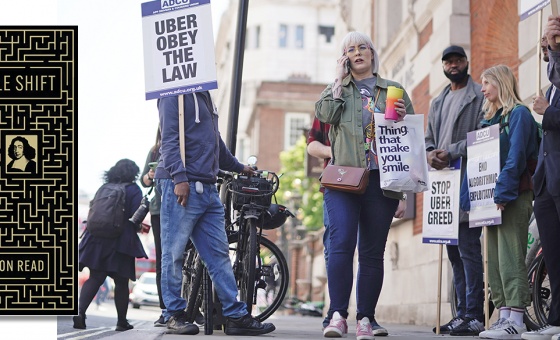This is the last article you can read this month
You can read more article this month
You can read more articles this month
Sorry your limit is up for this month
Reset on:
Please help support the Morning Star by subscribing here
AN 83-year-old female relative of mine was admitted to hospital last month with a potentially life-threatening condition.
The good news is that she got home last week and, when she did, she told me about her time in hospital.
Her story was probably identical to ones that many, if not all of us have heard or indeed witnessed ourselves about the NHS.
Highly professional clinical and non-clinical staff all doing their jobs, as part of a team, to the highest of standards, and with the courtesy, concern and cheerfulness that people value when at their most vulnerable.
At the same time, she saw people working under great pressure and obvious shortages of staff.
What was of particular interest to me was her description of her admission to hospital and how what people see as an admission has changed in only a few short years.
Admission no longer routinely consists of an assessment by a GP or at accident & emergency and going straight into a bed, either in a single room or a ward.
It is more and more likely now that after being seen, one will find oneself on a trolley for six hours or more, as was the case with my elderly relative; or sent to find a chair in a waiting area; or, occasionally, sent home and told to wait for a phone call when a bed becomes available; or, if one is really lucky, directed to a bed that has been hurriedly set up in a ward day room.
With every day that passes, it becomes harder and harder to get an NHS bed in Scotland.
Since the SNP came to power in Scotland, for a now unbroken period of 13 years, a quarter of the total NHS bed capacity has disappeared: over 6,000 beds gone.
The chances of getting an NHS bed when needed are not only diminished by the closure of beds. A continuing problem is the inability to discharge people when medically fit because the social support required for them to live at home or in their own community is lacking.
A Scottish government spokesperson recently replied to such concerns by saying: “Progress has been made in reducing delays.”
That statement flies in the face of all the evidence even the government itself has published regarding hospital stays.
Delayed discharges in Scotland rose by more than 6 per cent in the last year, with over 520,000 hospital-bed days being lost, at a cost of over £130 million, solely due to the impossibility of discharging people who would be well enough to leave hospital with proper social support.
With the largest proportion of delayed discharges being among people of retirement age, the problem, if nothing changes, is only going to significantly worsen in the next 25 years, with the retired population projected to rise by a quarter of a million while the number of people of working age will actually reduce.
The knock-on effect of forced delayed discharges, of course, is that in order to try to free up beds, at least some people who do have a reasonable degree of home and social support are being discharged before their optimum time, thereby increasing the risk of readmission.
The argument that the proponents of government policy continually trot out to defend bed closures is that people should not be admitted to hospital and, indeed, don’t want to be in hospital when care can be equally provided at home or in their own community.
No right-thinking person would disagree with this, but the important words in that premise are “equally provided.” The reality is that there is no such equal provision, and the closure of hospital beds has not been compensated for by investment in social care.
With local-authority funding having been cut by the SNP government by a staggering 7.4 per cent — far in excess of cuts to other services — proper homecare cannot regularly be provided either to prevent hospital admission or speed up discharge.
The SNP government has failed year after year to ensure people get healthcare not just where they need it but when they need it.
A quarter of a million Scots have waited longer than the 12-week treatment guarantee promised by the SNP.
Relative inequalities on morbidity and mortality in the major health conditions are on the increase, and precious NHS funds are squandered in not just paying private consortiums inflated prices to build NHS hospitals but, in the case of the Royal Hospital in Edinburgh, has resulted in £1.4 million being paid every month since February 2019 to such a consortium, even though the hospital cannot open due to safety concerns.
With all of this, and finding a hospital bed, becoming harder by the day, and treatment on a trolley on the increase, the NHS and healthcare in Scotland is at crisis point.
As Scottish Parliament elections loom on the horizon, politicians, trade unionists and voters are going to have to ask themselves whether there is a single constitutional magic bullet to improving healthcare in Scotland or whether the answer is more complex and requires both investment and a planned strategic commitment to a public healthcare system that puts the improvement of life at the forefront of its agenda.











